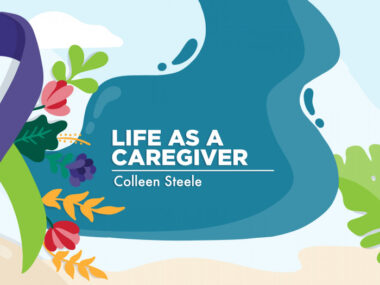With these hospital go-bag essentials, I’m always prepared
Having a everything ready before you need it is the key
Written by |

Living with a chronic illness feels like being caught in a revolving door of doctor appointments and surprise trips to the emergency room. Trust me, I’ve been caught there more times than I can count, all thanks to pulmonary hypertension (PH).
But amid the challenges, I’ve gained invaluable insights that I’m eager to share with you. And you know what? One of the most crucial lessons is to always be prepared with a hospital go-bag.
I know it’s not as thrilling as packing for a mom-to-be hospitalization or a vacation, but believe me when I say that preparing a bag like this is an absolute game-changer.
In the past, I struggled to have the right things with me during hospital stays. My family members did their best to help, but sometimes they’d grab outdated items or clothes that no longer fit. They already have enough on their plates, from juggling work to visiting me in the hospital. After several hospitalizations, I worked to lighten their load by creating an essential list of must-haves for my stay.
Now, I have a trusty bag that’s always fully stocked. Hopefully, you’ll never experience the kind of urgent situation that necessitates a hospital go-bag that you grab in a rush, but sadly unexpected hospitalizations are all too common with a rare disease like PH. So when it comes to preparing, it’s better to be safe than sorry.
So what’s inside my hospital go-bag? The following is my master list. Remember that this list works for me, but you might find other items helpful for your go-bag. Fellow Pulmonary Hypertension News columnist Anna Jeter also wrote about prepping a go-bag, so check out her column in case her ideas are more fitting to your circumstances.
Clothing and toiletries
First things first, let’s talk about clothing. Trust me, it’s crucial to put careful thought into this and not instinctively grab your favorite items. Instead, pack the items that are best suited for the hospital.
I always pack at least three comfortable tank tops and two or three short-sleeved T-shirts. Because of hospital air conditioning, I’ll also pack a long-sleeved T-shirt, pullover, or jacket.
For bottoms, I include two lightweight yoga-style pants, shorts for warmer months, and sweatpants for cooler months.
Pajama sets — button-up tops work best for IVs and heart monitors — are a must, along with enough underwear and sports bras for each day. And, of course, let’s remember fuzzy socks, slippers, and flip-flops for ultimate comfort and hygiene.
Toiletries also are necessary, so I bring travel-sized liquid body soap, shampoo, conditioner, a hairbrush, detangler spray, facial moisturizer, and body lotion. My healthcare team always comments on how fresh my room smells, so these things aren’t only for my benefit! Those Bath & Body Works lotions and body mists make a difference.
I also make sure to have extra hair ties, dry shampoo, toothpaste, a toothbrush, and feminine products.
Electronics and comfort items
Let’s talk electronics, because it seems we can’t live without them. I bring my trusty Kindle to unplug from more stimulating screens.
But as nice as a break from digital media is, it’s also nice to have my phone, because connection to the outside world is essential to preventing painful feelings of isolation and disconnection.
It’s good to have headphones and an iPad in case I’m sharing a room and a TV with someone. I also may carry my MacBook in case I needed to do some work. Instead of packing the usual chargers, I always pack a 6- to 10-foot phone charger to ensure the cord reaches my bed, plus an external charging block in case I’m wheeled to other areas of the hospital.
Comfort items? They make a world of difference. A few of my favorites include a cozy blanket to replace less comfortable hospital blankets, a pillow that’s more fitting to my posture, earplugs to dull the sound of IV alarms at night, a sleep mask for when nurses do their late-night rounds, and a sound machine (if I’m lucky enough to have a private room) to help me sleep. These little things create a soothing environment that helps me relax.
Final things
Here’s a little advice from someone who has learned the hard way: Pack more than you think you’ll need, especially underwear! Plus, don’t forget extra medications, as a particular hospital might not have access to your PH treatments due to stocking issues or pharmacy delays.
I rarely take my go-bag into the ER to prevent germ exposure, but I always keep it in the car in case hospital admission is necessary. Otherwise, it stays by the front door of my home for easy access whenever needed.
When I return home, I wash everything and put it back in my bag — or at least I should. Lately, I haven’t been as proactive as I need to be with this task. (But thinking about my procrastination inspired me to write this column, so it worked out.)
Anyway, when I’m prepared, my family doesn’t have to worry about finding the right items and I don’t have to worry about going without my necessities and desired items. Isn’t that peace of mind worth some planning, packing, and even laundry?
If I missed something, please let me know in the comments below. Let’s support and help each other out! Together, we can make hospital stays much more comfortable.
Note: Pulmonary Hypertension News is strictly a news and information website about the disease. It does not provide medical advice, diagnosis, or treatment. This content is not intended to be a substitute for professional medical advice, diagnosis, or treatment. Always seek the advice of your physician or other qualified health provider with any questions you may have regarding a medical condition. Never disregard professional medical advice or delay in seeking it because of something you have read on this website. The opinions expressed in this column are not those of Pulmonary Hypertension News or its parent company, Bionews, and are intended to spark discussion about issues pertaining to pulmonary hypertension.





Sevo
Happy holidays to all the phenomenal members and friends of phnews. I have a variation about this topic. To me is stressful and concerning to follows the?hospital procedures in reference of given my medication bottles to the nurses for them to send them to the pharmacy to be recognized. That is terrifying to me and stressful. I really don’t like the hospitals, they irritate me, they have become unfriendly. Every day is a gift 🎁, is a celebration, that is my purpose, practice gratitude, graceful for the kindness and gratifying memories that I have in this life so far ❤️❤️❤️. Always be prepared for anything, thanks for the good work Jen , great list for preparedness. I also prepared myself for other things, my support system organizer team. Who is the point of contact for updates, who is in charge for taking care of my loving pets(2 beautiful cats, princess and paprika, only indoor cats), keep a network of your care team physicians in speed dial .
Also , I am very concerned about room cleaning 🧽, sorry I bring my own detergents to clean the bathroom toilet and shower by the person that accompany me during the admission, Yeap I am protecting my self. Hahahaha 😂, I have a luggage-to-go, soon it will be a grocery cart-to-go🥳🥳🥳🥳
Be happy, make great memories ❤️❤️❤️
Jen Cueva
Hi Sevo! Happy New Year! I hope you had a great holiday. Your comments on this column mean a lot to me.
I've been in smaller hospitals that don't have my PH medications and want my bottles. What worked for me is having the pharmacist verify my prescriptions in my room and getting my doctor to write that I can take my medications. I try to go to larger hospitals with PH centers that carry the medications and are knowledgeable about them.
Your additions to my list are great. Having someone as a support system organizer is amazing! And keeping a list of all specialists on speed dial is crucial. I've had to call them myself when the nurses haven't heard back for hours.
OMG, cleaning suppliers too? Soon you'll need a Uhaul for your bag. LOL
Every day is a gift! Take care and hope to see you in the PH News forums soon.